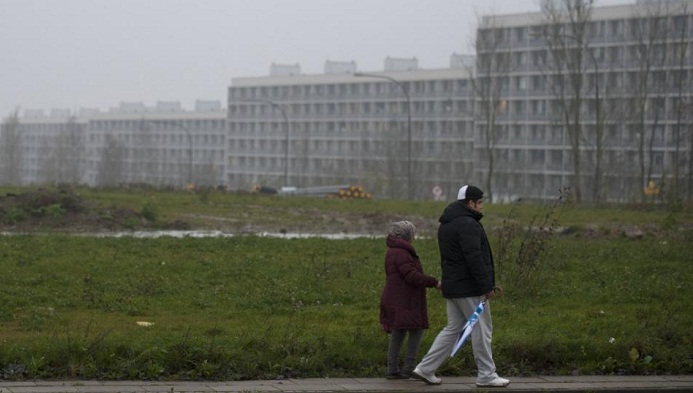In the Aarhus initiative, most efforts focus on prevention but authorities also work with returning jihadists to deradicalise them.Anyone can be referred to the city`s anti-radicalisation team by family members, friends or police, social workers and youth club leaders.
After a risk assessment, the person can be offered counselling, a mentorship programme and help with getting an education or a job, and finding housing.
Participation is on a voluntary basis and judging the programme`s success rate can be difficult.
Who runs the programme?
The city`s social services and youth departments have been working on pre-emptive projects with police for decades.
After similar projects with criminal biker gangs, the first joint anti-radicalisation effort was launched in 2007.
Who does it target?
All secondary school students, in both posh neighbourhoods and disadvantaged areas.
Police and social workers organise workshops in schools to "create debate over how to live life while respecting how others live their lives," said Toke Agerschou, who heads up the project.
Teachers and youth leaders are also trained to recognise the signs of radicalisation and are -- along with members of the community -- encouraged to contact the anti-radicalisation team if they are worried about someone.
Two social workers and two police officers, who also have other duties, work on the team.
Since the beginning of 2013, just over 30 people have travelled from the city of 300,000 to fight in Syria or Iraq.
Controversially, local authorities hold regular meetings with the leaders of a mosque that 25 of those people are known to have attended.
What happens to radicalised youths?
Those showing signs of radicalisation, as well as their families, are offered counselling. There is also a support network for family members.
Some are given help to find jobs or an apartment, and some accept an offer to meet regularly with a mentor.
Mentor meetings are held in an informal environment and can be something as simple as going to a public library or watching a football game.
Of those who have already left for Syria and Iraq, 17 have returned to Aarhus.
The project has been in touch with all of them, and around two-thirds are now either working or have resumed their education.
A dedicated "exit programme" for returning jihadists was launched last year but has failed to attract any participants.
Are they getting special treatment?
The city provides "the support you would receive if you had a regular youth with social problems," Agerschou said, citing substance abuse as an example.
While those returning to Aarhus from Syria may have violated Denmark`s anti-terrorism laws, it has been impossible for the authorities to prove that they did so.
"If you do something illegal you should take your punishment," he said.
Does it work?
While 30 people left Aarhus for Syria and Iraq in 2013, only one left in 2014 and three so far this year.
"Meeting them with demands and trust... works," Agerschou said, but added that there could be other reasons for the decline.
Since 2013, around 250 enquiries about potentially radicalised individuals have been received, out of which 100 were this year.
Around 20 mentor projects have been launched, out of which 10 are ongoing.
More about:
















































